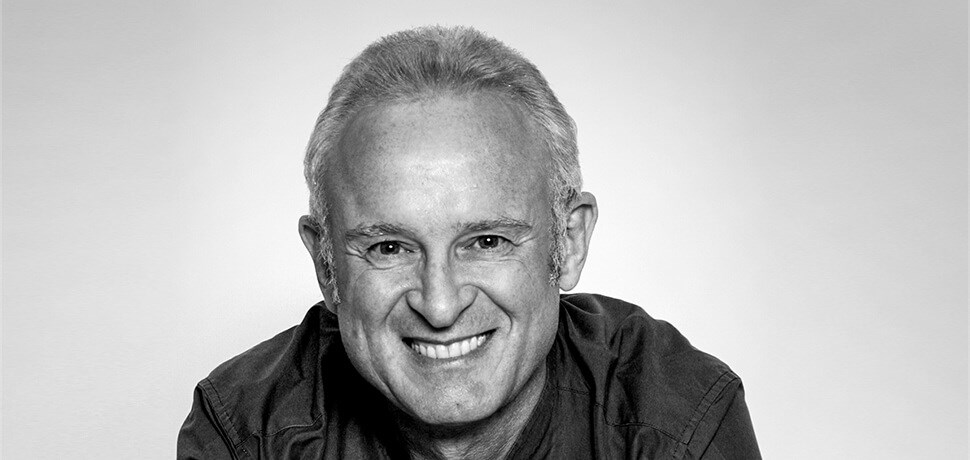
Arthur Goldstuck is a household name in South African journalism having begun his career at the Sunday Times in the early 1980s. He is widely considered the doyen of technology reporting locally and is an expert on all things digital. He was recently appointed Chair of the Sasfin Digital Arthur Goldstuck is a household name in South African journalism having begun his career at the Sunday Times in the early 1980s. He is widely considered the doyen of technology reporting locally and is an expert on all things digital. He was recently appointed Chair of the Sasfin Digital Advisory Council and is the author of several books. In this wide-ranging interview, we hear Arthur’s take on the implications of the fourth industrial revolution and get a sense of what it was like to rub shoulders with industry leaders such as Michael Dell, Founder of Dell Technologies and Reed Hastings, CEO of Netflix.
BS: Tell us a little bit about your upbringing – where did you grow up and how did you initially develop an interest in technology?
AG: I grew up in Trompsburg in the southern Free State, which came close to meeting the definition of “middle of nowhere”. The one respite from the isolation of the town – physically and spiritually – was the small public library, which had one shelf of science fiction novels. I read them all before I got to high school and they gave me a burning desire to be part of that science fiction future. I went to boarding school in Bloemfontein, which was equally isolating and escaped both as soon as I could, going to Wits University and living in Johannesburg ever since.
In those days, computers were as close to science fiction as the real world got and I took every opportunity I could to find out what people were doing with computers. That became one of the pillars of my journalistic career, along with writing about music and popular culture. When the internet arrived, I was ready for it, wrote a book about it and never looked back.
BS: In your experience – how serious a threat is the fourth industrial revolution to local unemployment?
AG: The fourth industrial revolution is both threat and opportunity. It is a massive threat to those who want to hold back the future and want to hold onto jobs rooted in the needs of the past, especially in mining and manufacture. Where automation, robotics and machine learning will eventually replace most routine manual labour, we will see large scale job destruction
However, at the very same time, we will see a massive shortage of skills in robotics, cybersecurity and Artificial Intelligence (AI). Granted, these are far higher-level jobs than manual labour, but you can instantly see what the equation looks like and where we need to prepare as a society, as a country and as industries. It has been obvious for much of this decade that the education system must change to prepare us for this future, but all we still see is people paying lip service to the concept.
BS: Tell us about the first time you ever handled a PC, cellular phone, laptop and tablet (in that order).
AG: The first computer I ever saw was through the door of a room in the Computer Science department at Wits University. I was majoring in English and didn’t have access to the room itself. I could merely gaze longingly at the computers with true pioneers sitting behind them. The first computer I touched was one of those home PC kits that ran off a cassette tape and used a black and white TV monitor for its display. I think it was either an Acorn Atom or a Radio Shack TRS-80.
“...we will see a massive shortage of skills in robotics, cybersecurity and artificial intelligence. Granted, these are far higher-level jobs than manual labour, but you can instantly see what the equation looks like and where we need to prepare as a society, as a country and as industries.”
I remember playing Pong, very slowly. That was the game that kickstarted the video game industry. I then had a close relationship with a Pucman (these days remembered only as Pacman) arcade game machine that was installed at the Men’s Residence at Wits. I was one of the Res champions, but it also cost me an extra year at university.
When I began to work at the Sunday Times in the early 1980s, it was a pioneer in the use of the Atex computer editing system designed by The Times of London. I took to it like a duck to water. I finally bought my first PC, an ICL machine with an Intel XT processor, monochrome monitor and no hard drive, but dual disk drives. I upgraded it a year later with a 20MB hard drive. When I began to work for the Weekly Mail in the late 1980s, they were the first publication in the country to use true desktop publishing and I got to know Apple Mac computers for the first time.
The biggest breakthrough came not with my first multimedia computer with colour display in 1992, but a year later, when I was sent a software package called TSOnline to review. I’d been wanting to try this online concept, so to test the software, I bought my first modem, a 14.4kbps unit, which I eventually swapped with the Madam & Eve team for three originals of their cartoons. I still have the cartoons. The modem is probably buried in a landfill somewhere.
BS: I believe you recently interviewed Michael Dell, one of the greatest tech innovators of all time. Tell us about that experience.
AG: The most remarkable thing about the interview was just how unremarkable it was. Not from the point of view that he wasn’t impressive, but rather that someone who didn’t know who he was would take him for a regular guy doing regular things.
He is almost the direct opposite of what you would expect from someone running a $90bn-revenue company. There is no arrogance, he has no airs and little obvious ego. He engages honestly and sincerely. That struck me as remarkable, as much as it is what one would hope for. He was also willing to pose for a selfie, but seemed uncomfortable and I felt I was pushing my luck there, so haven’t made too much of that pic. The truth is that I never, ever take selfies, but meeting him was a significant enough moment to persuade me to break my own rule.
BS: Steak or seafood?
AG: I prefer linefish and sushi to steak, but lamb is my favourite, followed closely by single malt whisky.
BS: Many of us know Virtual Reality (VR) and by extension AI, colloquially as something experiential. How close are we to engaging these technologies in our day to day lives?
AG: We are still a long way off. I’ve been following VR for well over 20 years and tried out the first, massive VR rig that was brought to South Africa by holographic pioneer Don Searll in the mid-1990s. One stepped into a platform and strapped things on. Even then, the promise seemed massive, but the experience underwhelming. Today, we can slip the devices over our heads and walk around with them, but the experience remains a pale approximation of reality.
Both computing power and display technology still needs to advance several generations for it to replicate reality convincingly. Augmented Reality, or AR, is much closer to true mainstream, but mostly in training and maintenance procedures.
BS: Who is the greatest living South African and why?
AG: I wouldn’t give that accolade to anyone. The only person I believe ever deserved it was Nelson Mandela.
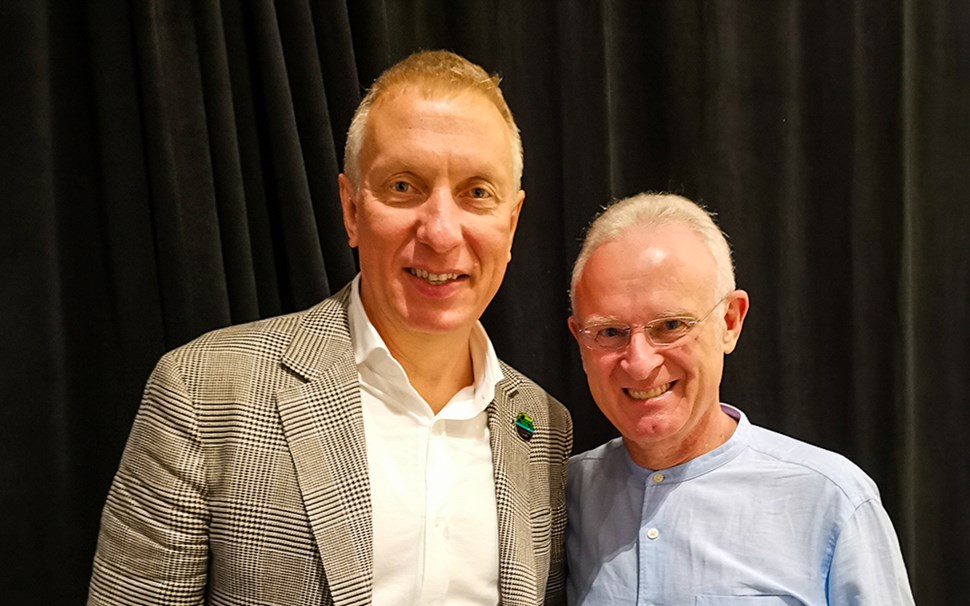
BS: What is the greatest investment you have ever made?
AG: Two bottles of Glenfiddich Snow Phoenix at Duty Free.
BS: Tell us about some of the more notorious incidences of corporates’ failure to innovate, such as Kodak? Could any of these have been averted?
AG: Such disasters could only have been averted with the benefit of clairvoyance. However, by having a long-term vision, rather than being focused on quarterly profits or current market share, companies like Kodak, Blockbuster, Nokia and BlackBerry could have avoided being Ubered the way they were.
Today, we see telecoms operators trying to hold onto their profit models of yesteryear, based on models built around voice communications, when the market has already shifted its behaviour to data and based on extracting revenue from customers in a manner that is the opposite of consumer-friendly. It is this anti-consumer attitude that has the potential of turning many of them into the Blockbusters of tomorrow.
“Both computing power and display technology still needs to advance several generations for it to replicate reality convincingly.”
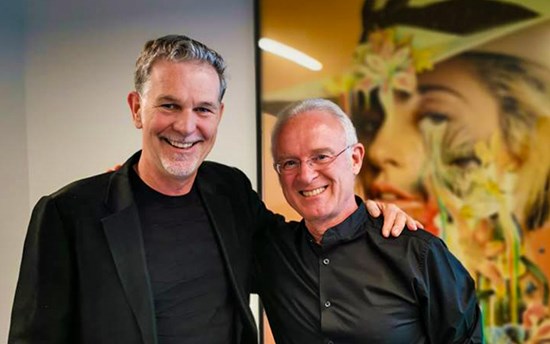
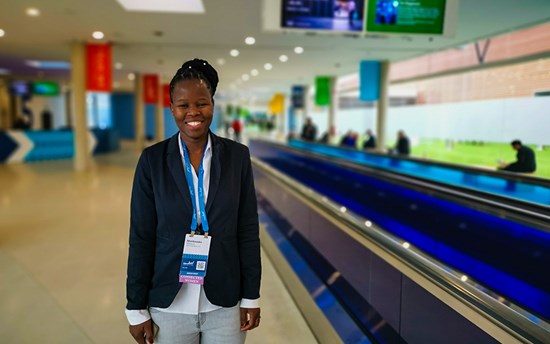
BS: You have attended all the major global technology shows for many years. What are some of the key insights you have seen in terms of the future of robotics and industry?
AG: The most significant insights have been that the impact of humanoid robots is vastly overstated, and the impact of Artificial Intelligence and big data vastly underestimated. As a picture of the future unfolds from all these events, it is clear the technology to which we will be exposed a decade from now will be almost unrecognisable, viewed from today’s perspective. This further tells me that governments, businesses and educational institutions are woefully unprepared for the future, as they tend to hold onto the way things were done 20 years ago and even 50 years ago.
Businesses that are on top of the shift and have an open mindset to leverage new capabilities where they are relevant to the business – and to customers – rather than for the sake of technology, will dramatically outperform businesses that stick to the old ways. Another key insight is that each of us will have a different future, based on the technology we can afford and the level of technological engagement with which we’re comfortable. Businesses that are agile enough to engage with consumers based on that understanding will have a massive advantage.
BS: What is your favourite holiday destination and why?
New York is my favourite city in the world to visit and walk, because it is such a fascinating and everchanging pageant of people, cultures and the arts (but one of the worst airports in the world, given that it is the gateway to the USA). Tel Aviv is my favourite city for the fascinating melding of popular culture and technology start-up culture in a city that always has a buzz, in a way that Silicon Valley, for example, simply does not. Umhlanga is my winter happy place for sheer relaxation in a wonderful climate. Barcelona is my favourite conference and expo city for its authenticity and vast range of things to do when done with walking the floors. Singapore is my favourite city for its vision of a future architecture and Tokyo for its vision of a future society. In short, there cannot be only one favourite destination.
BS: Do you believe the tech valuations on the Nasdaq are sustainable? Might we encounter another tech stock crash akin to the late 1990s?
AG: Some tech valuations are fair, others are inflated, but it is unlikely this will cause a crash. It is more likely that the trade war politics of the Trump administration could have a domino effect that will lead to one tech stock after another crashing and finally playing itself out in a crash, or even a long decline.
BS: Chrome or Internet Explorer?
AG: Chrome by a long shot, although I’m ready for the next big (or small) browser, as Chrome is becoming clunky too.
BS: Sasfin recently established its first Digital Advisory Council, which you chair. What is the vision for the Council and how will it achieve its day to day objectives?
I see the Digital Advisory Council as an independent think tank that will decipher the fintech present and future, providing a clear understanding of the impact being made by digitalisation and fintech today and the exponential change they will bring tomorrow. My role will be, partly, to curate the wide spectrum of digitalisation and fintech knowledge and insight that the members bring to the Digital Advisory Council and help create scenarios that businesses and policy makers may use to navigate the future – both inside and outside Sasfin.
“Another key insight is that each of us will have a different future, based on the technology we can afford and the level of technological engagement with which we’re comfortable.”
BS: How do you relax in your spare time?
AG: I love watching soccer (or football, as the British insist), visiting foreign destinations (but not getting there), listening to music, exploring the future and bingeing on science fiction series on Netflix. Relaxing with my family is the greatest pleasure of all.
BS: Google or Bing?
AG: Google, but I do use Bing for some features where it is stronger.
BS: What advice do you have for young tech entrepreneurs or young IT graduates looking to grow themselves in the digital space?
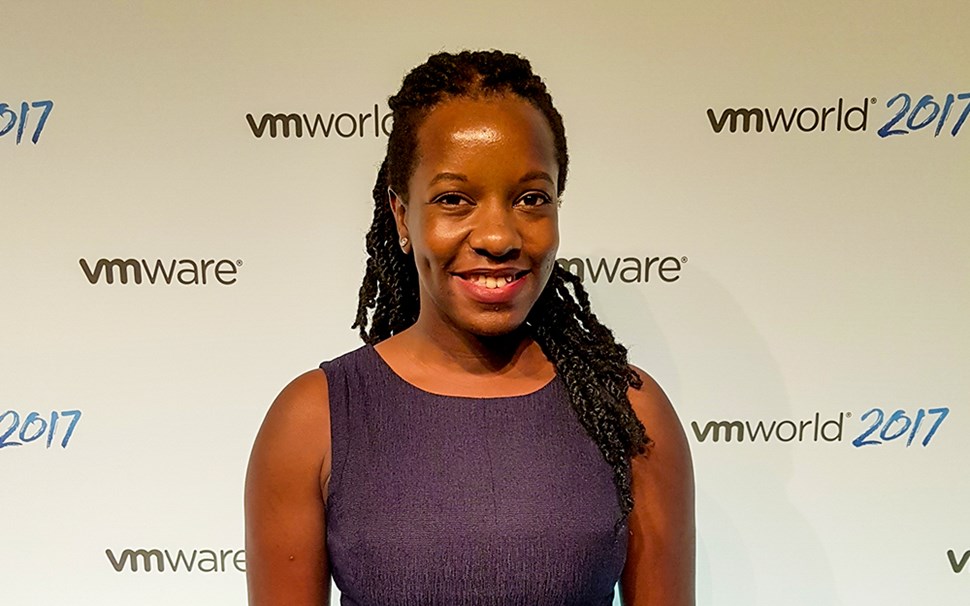
“Always be curious. Always ask not only “what if?”, but also “what next?”
AG: Always be open to new thinking. The greatest drawback of young entrepreneurs is that they are so certain of their thinking, that they become close-minded and won’t entertain contrary ideas, opinions or visions. Yet, that is crucial to the agility they will need to cope with the rapid pace of acceleration of technology change. When someone tells me they will, for example, “never change from Apple”, I know that they are closed-minded about technology. I seldom hear that from older entrepreneurs. Always be curious. Always ask not only “what if?”, but also “what next?”.
Never be complacent. No matter your age or the stage of your career, there is always another mountain to climb, a further vision to pursue, more knowledge to attain and more wisdom to gain.
BS: Apple or Samsung?
AG: Huawei. Its new P30 Pro is by far the best handset I’ve ever used. However, if Huawei fails to persuade the US to let it use Google technology and has to drop both Android and the Google Apps from future models on the basis of current technology, I would opt for Samsung. The Galaxy S10+ is a superior device to anything in the iPhone X range. For its time, however, my best phones ever were the Nokia 6310i and the Samsung Galaxy S4.